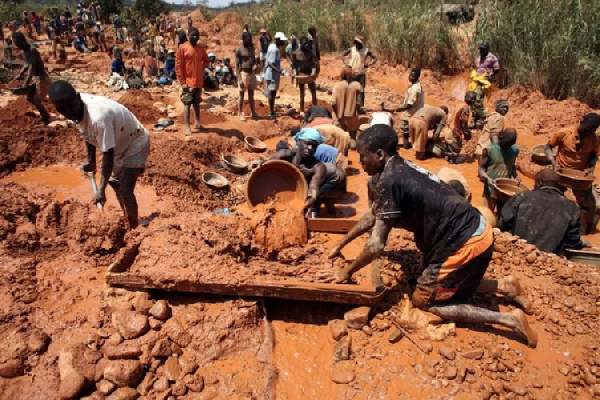Ghana’s battle against galamsey – the pervasive blight of illegal small-scale mining – has long been a national heartache. Yet, under the astute leadership of Inspector-General of Police (IGP) Christian Tetteh Yohuno, there’s a palpable shift in momentum.
The IGP hasn’t merely declared a fight; he’s launched a comprehensive “war,” demonstrating a strategic depth that warrants close examination and, indeed, commendation.
A Surgical Approach to a Deep-Seated Problem
What sets the IGP’s current offensive apart is its clear departure from haphazard operations. We are witnessing intelligence-led high-impact missions systematically targeting known galamsey hotbeds across regions like Ashanti, Eastern, Western, and Central.
The results speak volumes: significant arrests, the confiscation of heavy machinery such as excavators and ‘Chanfang’ machines, and the decisive destruction of illegal mining equipment. This isn’t just about presence; it’s about persistent, targeted disruption, sending an unequivocal message to illegal miners that their destructive days are numbered.
Moreover, the IGP has acutely grasped the multifaceted nature of galamsey. It’s not solely an environmental catastrophe; it’s a profound security threat. His emphasis on the “lawlessness” – the armed criminals attacking innocent citizens and forest guards – highlights a crucial understanding.
This isn’t just about policing a crime; it’s about restoring fundamental security and order, a foundational pillar for any functioning society. By framing it as a security imperative, the IGP elevates the fight beyond mere environmental protection to a matter of national stability.
Dismantling Networks,
Building Alliances
Crucially, the strategy extends beyond individual arrests to dismantling the intricate networks that fuel galamsey. There’s a discernible focus on prosecuting not just the foot soldiers but the key orchestrators, including foreign nationals often at the apex of these destructive operations. This move is vital; true victory against galamsey lies in cutting off the head of the snake, not just pruning its tail.
Equally impressive is the IGP’s collaborative spirit. The Ghana Police Service isn’t acting in isolation. Their strong partnership with the Ministry of Lands and Natural Resources and the Forestry Commission exemplifies a joined-up government approach. Such synergy is indispensable.
As the Minister for Lands and Natural Resources himself has rightly lauded, the police’s vigorous role in
safeguarding our water bodies is a testament to effective inter-agency cooperation. This collaborative blueprint is precisely what’s needed to overcome such a pervasive national challenge.
Sustaining the Momentum: A Communications Imperative
While the IGP’s strategic foresight and operational resolve are undeniable, the fight against galamsey is far from over. Challenges such as alleged complicity within state institutions, the need for swifter judicial processes, and addressing underlying socio-economic factors persist. This protracted battle requires not only sustained operational pressure but also a robust and sophisticated communication strategy.
For the public to remain steadfastly behind these efforts, and for the full weight of governmental and societal support to be brought to bear, clear, consistent, and compelling communication is paramount.
The narrative must highlight successes, address challenges transparently, and continuously reinforce the long-term vision for a galamsey-free Ghana. This demands a nuanced understanding of public sentiment, media dynamics, and strategic messaging that reinforces the IGP’s commendable leadership and the police force’s dedication.
The IGP’s war on galamsey isn’t just a police operation; it’s a national mission. His strategic acumen has set a powerful precedent. To truly cement these gains and rally the nation behind this vital cause, the force’s exceptional work must be communicated with equal precision and impact.
Written by Raymond Ablorh
Policy, Strategy & Communication




































